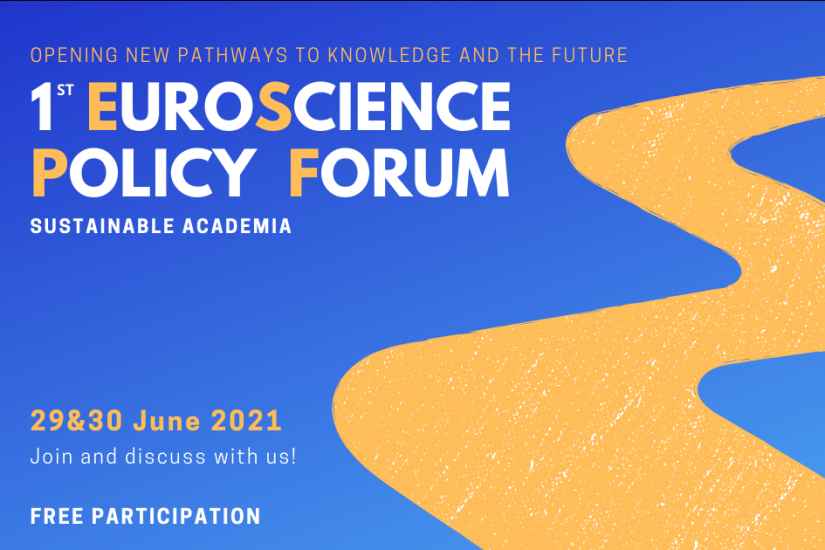
Academic research needs a quite high level of autonomy in order to fulfil its long-term mission well. Taking this statement as a starting point, our session focuses on the different dimensions that have to come together to actually make this self-governance happen in a successful and sustainable manner. Sustainable academia therefore calls for a close reflection on three levels. Our focus is on European institutions of academic research with their often strong financial and regulatory ties to public authorities.
This session will focus on the conditions for “academic autonomy” and asks what needs to be done to assure its sustainability. It will do so by exploring three sets of questions:
- What degree of autonomy should be granted to academic institutions from the policy side, specifically in terms of legal frames?
- What kind of funding structures can best support academic autonomy while assuring quality and accountability?
- What kinds of internal organisational governance structures need to be put in place in order to allow a multi-level autonomy and inspirational leadership to flourish?
The panel discussion is part of the 1st EuroScience Policy Forum.
Dr. Michael Stampfer
Moderator - Director of the Vienna Science and Technology Fund (WWTF)
Michael Stampfer is Managing Director of the Vienna Science and Technology Fund (WWTF), a private non-profit funding organisation for scientific research in Vienna.
He holds a doctoral degree of the faculty of law of the University of Vienna and has a long-time experience in the field of Austrian and international research and technology policy. Michael has done work on research policy, funding and university governance in a number of national, EU and OECD projects.
Prof. Liviu Matei
Provost and Pro-Rector of the Central European University
Liviu Matei is Provost of Central European University and a Professor of Higher Education Policy. He taught at universities in Romania, Hungary and the U.S., consulted extensively in the area of higher education policy and conducted applied policy research projects for the World Bank, UNESCO, OSCE, the Council of Europe, the European Commission, and other international organizations (intergovernmental and non-governmental), national authorities and universities from Europe and Asia. He is a member of the Board of Trustees of the American University of Central Asia and serves on the editorial boards of the Internationalisation of Higher Education Journal and the European Journal of Higher Education. He studied philosophy and psychology at Babeș-Bolyai University Cluj, and Sociology of Higher Education at Bucharest University, Romania. He received his PhD from the latter. His primary areas of expertise include university governance, funding, internationalization of higher education, academic freedom and university autonomy, quality assurance.
Prof. Ole Petter Ottersen
President of the Karolinska Institutet
I took office as President of Karolinska Institutet on August 1, 2017 after having served eight years (2009-2017) as President of the University of Oslo (UiO). From 2002 to 2009 I was Director of Centre for Molecular Biology and Neuroscience – one of Norway’s Centres of Excellence.
I have served as Chief Editor of Neuroscience (2006-2009) – the official journal of the International brain research organization (IBRO) – and as panel leader in the European research Council (ERC Advanced Grants) from the start to 2012. I was Founding Chair (2016-2017) of a newly established European university network (the Guild of Research Intensive Universities) and chaired the Lancet Commission that studied the political determinants of global health inequalities (The Lancet-University of Oslo Commission on Global Governance for Health). I have had a strong research interest in the field of neuroscience, with a particular focus on synaptic structure and function and on the molecular mechanisms underlying edema formation and water transport in brain. In recent years I have been engaged in global health, much inspired by my experiences gained as Chair of the Lancet-University of Oslo Commission
Prof. Maria Nedeva
Professor of Science and Innovation Dynamics and Policy, University of Manchester
I am Professor of Science and Innovation Dynamics and Policy at the Alliance Manchester Business School (AMBS), the University of Manchester, a long-standing member of the Manchester Institute for Innovation Research MIoIR) and Professor of Science Policy at the University of Lund, Sweden.
Intellectually, my research is on science dynamics. My research group and I focus on studying the conditions that policy, evaluation, and funding rules create for the conduct of research and how, through what mechanisms these conditions affect, or not, the science system. I research and publish on: universities, governance, management, changing research spaces; the effects of policy on the science system; and evaluation and selection practices in science.